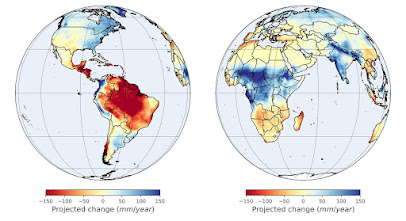
Climate change worldwide is a significant global issue that affects countries all around the world. Here are some key points regarding climate change worldwide:
Climate Change World wide And Main Reason For Climate change in Global warming
Temperature Rise: Global temperatures have been steadily increasing due to the release of greenhouse gases, such as carbon dioxide and methane, into the atmosphere. This rise in temperature leads to various impacts such as more frequent and intense heatwaves, changes in precipitation patterns, and rising sea levels.
Extreme Weather Events: Climate change is linked to an increase in the frequency and intensity of extreme weather events such as hurricanes, typhoons, floods, droughts, and wildfires. These events can cause significant damage to infrastructure, agriculture, and ecosystems, and they also pose risks to human lives and livelihoods.
Melting Ice Caps and Rising Sea Levels: The warming climate is causing polar ice caps and glaciers to melt at accelerated rates. This melting contributes to rising sea levels, which can lead to coastal erosion, inundation of low-lying areas, and increased risks of storm surges and flooding in coastal communities.
Impacts on Ecosystems and Biodiversity: Climate change is disrupting ecosystems and altering habitats, leading to shifts in species distributions, changes in the timing of seasonal events, and increased risks of extinction for many plant and animal species. This can have cascading effects on ecosystems and the services they provide to humans.
Global Mitigation Efforts: There is a growing recognition of the need for urgent action to mitigate climate change by reducing greenhouse gas emissions. The Paris Agreement, adopted in 2015, is a landmark international treaty aimed at limiting global warming to well below 2 degrees Celsius above pre-industrial levels, with efforts to limit the increase to 1.5 degrees Celsius.
Adaptation and Resilience: In addition to mitigation efforts, there is also a need for adaptation measures to help communities and ecosystems cope with the impacts of Climate Change Worldwide that are already underway. This includes initiatives such as improving infrastructure resilience, implementing sustainable land-use practices, and enhancing early warning systems for extreme weather events.
Global Cooperation and Action: Addressing climate change requires coordinated action at the international, national, and local levels. Governments, businesses, civil society organizations, and individuals all have roles to play in reducing emissions, transitioning to renewable energy sources, promoting sustainable development, and building resilience to climate impacts. Overall, Climate Change Worldwide is a complex and multifaceted issue that requires comprehensive and sustained efforts to mitigate its impacts and build a more sustainable and resilient future for all.








